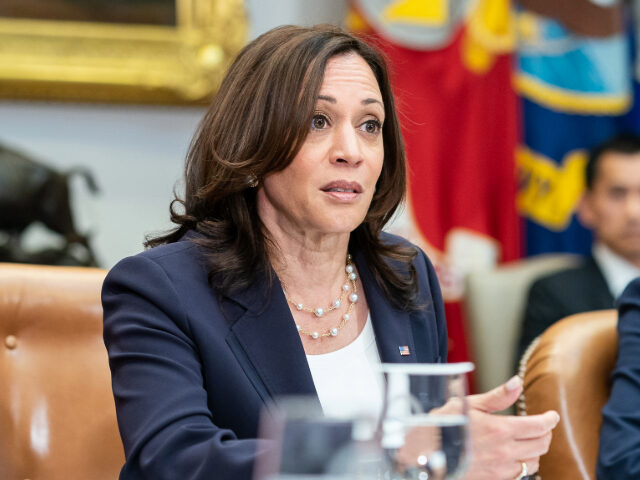The Washington Post‘s editorial board roasted Vice President Kamala Harris for her newly announced economic plan.
In an editorial piece on Friday, the Washington Post noted that Harris “squandered” the opportunity to announce a “substantial plan” to the American public.
“Americans are clearly still anxious and angry about the high cost of groceries, housing and even $5.29 Big Macs,” the editorial board wrote. “While the inflation rate has cooled substantially since the 2022 peak, an ostensible Biden-Harris administration accomplishment, prices remain elevated relative to the Trump years”:
So it’s a real political issue for Ms. Harris. One way to handle it might be to level with voters, telling them that inflation spiked in 2021 mainly because the pandemic snarled supply chains, and that the Federal Reserve’s policies, which the Biden-Harris administration supported, are working to slow it. The vice president instead opted for a less forthright route: Blaming big business. She vowed to go after “price gouging” by grocery stores, landlords, pharmaceutical companies and other supposed corporate perpetrators by having the Federal Trade Commission enforce a vaguely defined “federal ban on price gouging.”
The piece from the outlet’s editorial board came after Harris vowed to build three million new homes over the course of four years, go after companies for price gouging, and give families a $6,000 child tax credit.
While the outlet noted that Harris’s housing plan was “built on a slightly firmer foundation,” it added that she had placed her finger on the problem with the “housing-affordability problem,” which was having an “insufficient supply.”
“She offers clever tax incentives to help make it happen,” the editorial board wrote. “But her proposed $25,000 in down payment assistance for first-time home buyers stimulates the demand side, which risks putting upward pressure on prices. Such a measure might make sense if Ms. Harris paid for it by eliminating other demand-side housing subsidies, such as the mortgage interest education, a roughly $30 billion annual drain on federal revenue that benefits many wealthy Americans — but she does not.”
Harris’s promise to build three million homes comes as almost 1.5 million homes were built in 2023 alone, according to a press release from Zillow.
As Breitbart News reported, Harris’s promise “would actually mean construction had” decreased by 50 percent.
“Her ideas would cost money, yet she insisted in her speech that she would hold to President Joe Biden’s pledge not to raise taxes on any household earning $400,000 or less annually,” the editorial board added.
The editorial board added that Harris’s promise to not raise taxes on families earning $400,000 or less each year did not include “80 percent of taxable income, and does not take into account the recent surge in families earning over $400,000.”
A report from the Committee for a Responsible Federal Budget found that without a concrete plan to “raise revenue,” the policies proposed by Harris would add “$1.7 trillion over a decade” to the federal deficit.
“The Harris campaign has said this would be paid for through taxes on corporations and high earners and that they support the revenue raisers in the President’s Fiscal Year (FY) 2025 budget but has not put forward specific offsets as part of their Agenda to Lower Costs for American Families,” the report said.

COMMENTS
Please let us know if you're having issues with commenting.